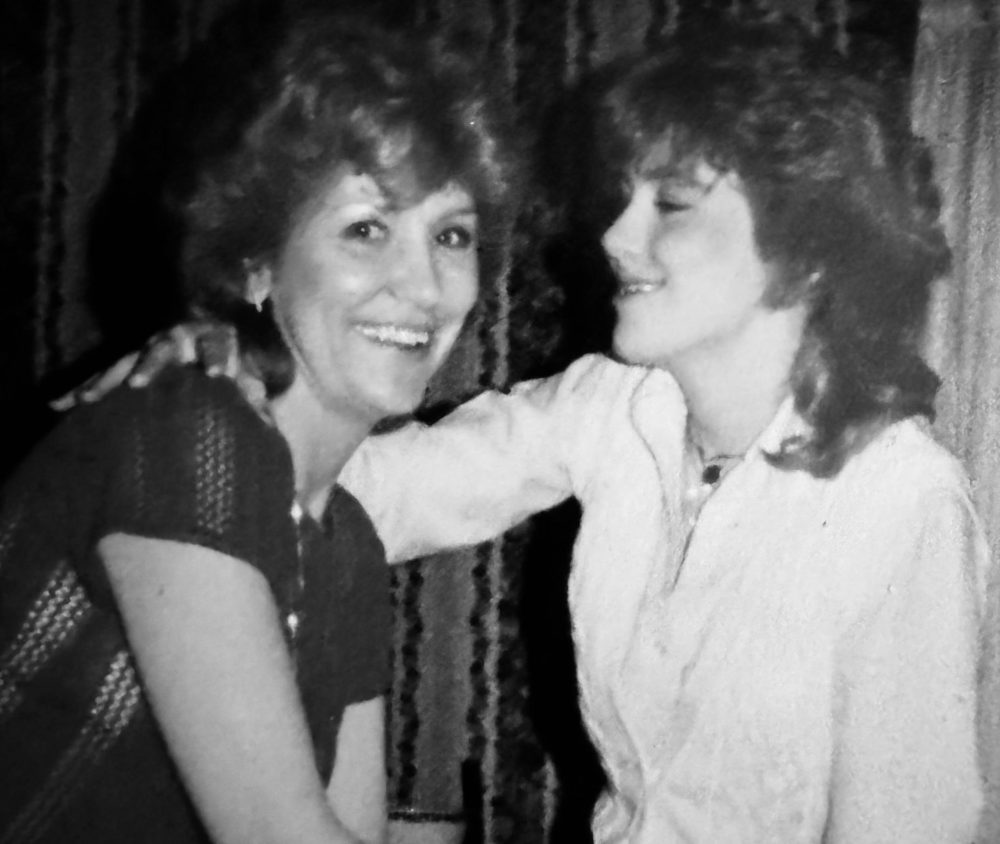Table of Contents
- Why These Two Issues Often Appear Together
- The Deep Sleep Problem
- How Bad Sleep Creates ADHD Symptoms
- What Happens When You Fix the Sleep Issue
- Signs Your Child’s Sleep Isn’t Working Right
- Real Stories of Change
- Why Doctors Miss This Connection
- Frequently Asked Questions
If your child wets the bed and also struggles with focus, attention, or hyperactivity, you’re not alone. Many parents notice this pattern. They search online, trying to understand why their child deals with both issues.
Here’s what most people don’t know: bedwetting and ADHD symptoms often share the same root cause. And that cause isn’t what you think.
After 50 years of helping families end bedwetting, we’ve seen something remarkable. When we help children stop wetting the bed by fixing their sleep, something else happens too. Their ADHD symptoms often get better. Sometimes they go away completely.
This isn’t a coincidence. It’s a pattern we’ve watched repeat thousands of times.
Why These Two Issues Often Appear Together
Many children who wet the bed have been diagnosed with ADHD. Some were diagnosed very young. Most take medication for it.
Then there are other children who show clear ADHD symptoms but never got an official diagnosis. Maybe their test results came back as “borderline” or “inconclusive.” The symptoms are still there, though:
- Trouble focusing
- Getting distracted easily
- Moving around constantly
- Acting without thinking
- Talking too much
- Putting things off
- Getting irritated quickly
- Having mood swings
Parents often think these are two separate problems. Bedwetting is one issue. ADHD is another. But what if they’re actually connected?
The Deep Sleep Problem
Every person who wets the bed shares one thing: they sleep incredibly deeply. This isn’t normal deep sleep. This is sleep so deep that loud noises won’t wake them up. A smoke alarm might go off, and they’ll keep sleeping.
This extreme deep sleep comes from an inherited gene. If a parent wet the bed as a child, their kids often do too. The gene gets passed down through families.
Here’s the key: when someone sleeps this deeply, their brain doesn’t cycle through sleep stages the way it should. Normal sleep has different stages. Your brain moves through them in a pattern throughout the night. This cycling is how your body and mind rest and recharge.
But when you sleep too deeply, you get stuck. Your brain doesn’t move through the stages properly. You might sleep for ten hours but wake up feeling like you only slept six or seven.
This poor sleep quality affects everything. It affects your body. It affects your mood. And it affects your brain function during the day.
How Bad Sleep Creates ADHD Symptoms
Think about how you feel after a bad night of sleep. You can’t focus as well. You feel irritable. You might feel hyper or wired. Small things bother you more than usual.
Now imagine feeling like that every single day. That’s what happens when you never get good quality sleep.
Children who wet the bed aren’t cycling through sleep stages properly. Night after night, their brains and nervous systems don’t get what they need. Their bodies might be in bed for many hours, but the sleep isn’t doing its job.
The result? They wake up tired, even if they don’t realize it. Their brains haven’t recharged. Their nervous systems are running on empty.
During the day, this shows up as symptoms that look exactly like ADHD:
- Focus problems: A tired brain can’t concentrate well
- Hyperactivity: The body tries to compensate for being tired by moving more
- Impulsivity: Poor sleep affects the parts of the brain that control impulses
- Mood issues: Sleep deprivation causes irritability and emotional swings
- Memory struggles: The brain needs proper sleep to form and store memories
These aren’t character flaws. They’re not behavior problems. They’re symptoms of a brain that isn’t getting the rest it needs.
What Happens When You Fix the Sleep Issue
Here’s where things get interesting. When we help children stop bedwetting by changing their sleep pattern, we see amazing changes.
The bedwetting ends. That’s what parents expect. But then other things change too:
- Children can focus better in school
- Hyperactivity decreases
- Mood improves
- Energy levels become more stable
- Impulse control gets better
- Memory and learning improve
Parents tell us their child seems like a different person. Teachers notice changes in the classroom. The child feels better and doesn’t understand why they struggled before.
What happened? The sleep problem got fixed. When children start cycling through sleep stages properly, their brains and bodies finally get the rest they need. The ADHD symptoms that came from poor sleep start to fade.
In many cases, the symptoms disappear completely. The child who seemed to have ADHD doesn’t anymore. They were never truly ADHD. They were just exhausted from years of poor quality sleep.
The Misdiagnosis Problem
We’ve come to believe that many ADHD diagnoses in bedwetting children are actually misdiagnoses. The symptoms are real. The struggles are real. But the cause isn’t ADHD. It’s sleep deprivation.
This matters because it changes what will help. ADHD medication treats symptoms. It doesn’t fix sleep. So a child might focus a bit better on medication, but they’re still not sleeping properly. Their bedwetting continues. Their overall health doesn’t improve.
When you address the actual problem—the sleep disorder—everything can change.
Of course, some children who wet the bed do have true ADHD. That happens. But in our experience over five decades, about 9 out of 10 children see their ADHD symptoms either disappear or reduce significantly when their sleep improves.
That’s a huge number. It means most children diagnosed with ADHD while they’re still bedwetting might not need that diagnosis at all.
Signs Your Child’s Sleep Isn’t Working Right
How can you tell if your child’s sleep quality is the problem? Look for these signs:
During Sleep:
- Extremely hard to wake up
- Doesn’t respond to loud noises
- Sleeps through alarms
- Wets the bed
- Doesn’t move much during sleep
After Waking:
- Seems tired even after sleeping many hours
- Grumpy or irritable in the morning
- Hard to get going
- Needs a lot of time to fully wake up
During the Day:
- Trouble focusing
- Gets distracted easily
- Seems hyper or restless
- Mood swings
- Acts without thinking
- Gets overwhelmed easily
If your child shows these signs, poor sleep quality might be affecting their daytime behavior.
Real Stories of Change
Parents call us to end bedwetting. They usually don’t expect anything else to change. But then they see their whole child transform.
A child who couldn’t sit still in class suddenly can focus for a whole lesson. A teen who forgot homework constantly starts remembering assignments. A kid who seemed angry all the time becomes calmer and happier.
These changes happen because the brain finally gets what it needs. Proper sleep affects everything about how we function.
Many doctors and psychologists now refer patients to us because they’ve seen these results. They understand the connection between sleep quality and daytime behavior. They know that fixing the sleep can change a child’s entire life.
Why Doctors Miss This Connection
Most doctors don’t connect bedwetting with ADHD symptoms. They see them as separate issues. A child comes in wetting the bed—that’s one problem. The same child can’t focus at school—that’s another problem.
The ADHD gets diagnosed and treated with medication. The bedwetting might get addressed with different medication or a “wait and see” approach. But nobody looks at the sleep quality connecting both issues.
This happens because medical training doesn’t teach this connection. Doctors learn about ADHD as a brain disorder. They learn about bedwetting as either a developmental phase or a bladder issue. Nobody mentions that both might come from the same sleep problem.
The research exists. Dr. Roger Broughton proved the connection between deep sleep and bedwetting decades ago. Studies show how sleep quality affects behavior and focus. But this information hasn’t made it into standard medical practice yet.
The Path Forward
If your child wets the bed and shows ADHD symptoms, consider their sleep quality. Ask yourself:
- Does my child sleep very deeply?
- Do they seem tired even after sleeping a long time?
- Did the ADHD symptoms start around the same time as bedwetting became a concern?
- Have ADHD medications helped some symptoms but not others?
If you answered yes to these questions, the real problem might be sleep. And sleep can be fixed.
When you address the deep sleep disorder that causes bedwetting, you’re not just ending wet sheets. You’re giving your child’s brain and body the chance to rest properly. You’re allowing their nervous system to recharge each night. You’re helping their whole system work the way it should.
The result is often life-changing. Bedwetting ends. But beyond that, children become who they were meant to be all along. They can focus. They can learn. They can manage their emotions and behavior. Not because they’re trying harder, but because their brain finally has what it needs to function well.
A Better Life Waits
Thousands of families have seen these changes over the past 50 years. Children who struggled with both bedwetting and attention issues found relief from both when their sleep improved.
Your child doesn’t have to live with either problem. There’s a solution that addresses the root cause instead of just managing symptoms.
When sleep works right, everything else can fall into place. Focus improves. Mood stabilizes. Behavior changes. And yes, bedwetting ends.
That’s the power of fixing sleep. That’s what happens when you address the real problem instead of treating separate symptoms.
If your child wets the bed and struggles during the day, their sleep quality might be the missing piece. Fix the sleep, and watch how much can change.
Frequently Asked Questions
Is there really a connection between bedwetting and ADHD?
Yes. Many children who wet the bed also show ADHD symptoms. Both issues often stem from the same cause: extremely deep sleep that prevents proper sleep cycling. When the brain doesn’t move through sleep stages correctly, it affects focus, behavior, and mood during the day. It also prevents children from waking up when their bladder is full at night.
Does my child have ADHD or just poor sleep?
This is hard to tell without addressing the sleep issue first. In our experience, about 9 out of 10 children with both bedwetting and ADHD symptoms see those symptoms improve or disappear when their sleep quality gets better. This suggests that many ADHD diagnoses in bedwetting children are actually symptoms of sleep deprivation, not true ADHD.
Will fixing bedwetting help with ADHD symptoms?
When bedwetting is resolved by fixing the deep sleep problem, most children experience major improvements in focus, behavior, and mood. This happens because their brains finally get the proper rest they need. The “ADHD symptoms” that came from poor sleep typically fade away.
Should I stop my child’s ADHD medication?
Never stop medication without talking to your doctor first. However, many parents find that after their child’s sleep improves and bedwetting ends, ADHD symptoms reduce significantly. At that point, you can work with your doctor to see if medication is still needed.
How does deep sleep cause ADHD-like symptoms?
When you sleep too deeply, your brain doesn’t cycle through sleep stages properly. Your brain and nervous system need this cycling to rest and recharge. Without it, you wake up tired even after sleeping many hours. This sleep deprivation creates symptoms that look exactly like ADHD: trouble focusing, hyperactivity, impulsivity, irritability, and poor impulse control.
Can sleep problems really be mistaken for ADHD?
Absolutely. Sleep deprivation and ADHD create very similar symptoms. A child who isn’t sleeping well will struggle with focus, attention, impulse control, and mood—the same issues seen in ADHD. Many children have been diagnosed with ADHD when their real problem is that they’ve never gotten good quality sleep.
How long does it take to see changes in behavior?
Once sleep quality improves, most children start showing behavioral changes fairly quickly. Parents often notice improvements in mood and focus within weeks. The changes become more obvious over time as the child’s brain and body adjust to getting proper rest every night.
Does this mean bedwetting is more serious than doctors say?
Yes. Bedwetting indicates a sleep disorder that affects more than just nighttime bladder control. It impacts brain function, emotional health, behavior, and overall wellbeing. When doctors tell parents to “wait it out,” they’re missing how much bedwetting affects a child’s entire life—including their daytime functioning.
Learn More
For more information about sleep, ADHD, and bedwetting, these resources can help:
- National Sleep Foundation – Children and Sleep – How sleep affects child development and behavior
- Sleep Education by AASM – Information about sleep disorders in children
- CHADD – ADHD and Sleep Problems – Understanding the connection between ADHD and sleep issues
Ready to address your child’s bedwetting and discover if their ADHD symptoms are related to sleep? The Bedwetting Treatment Center has helped thousands of families end bedwetting while improving overall health and behavior. Visit nobedwetting.com to learn how we can help your family.



